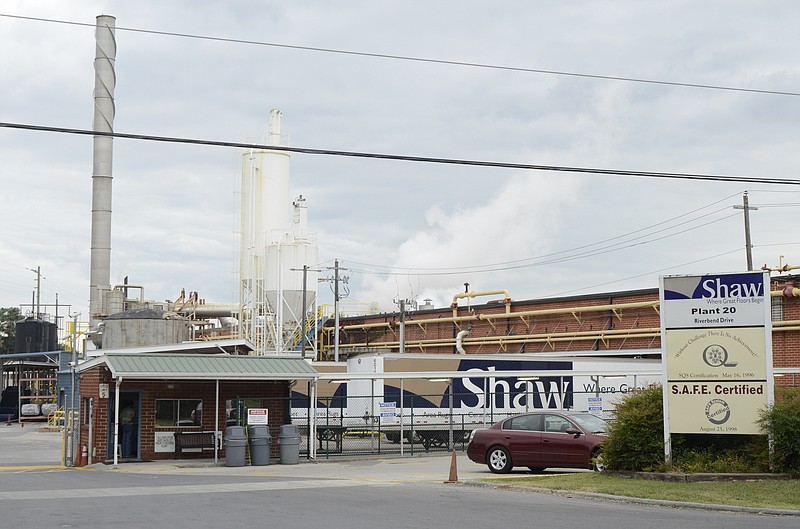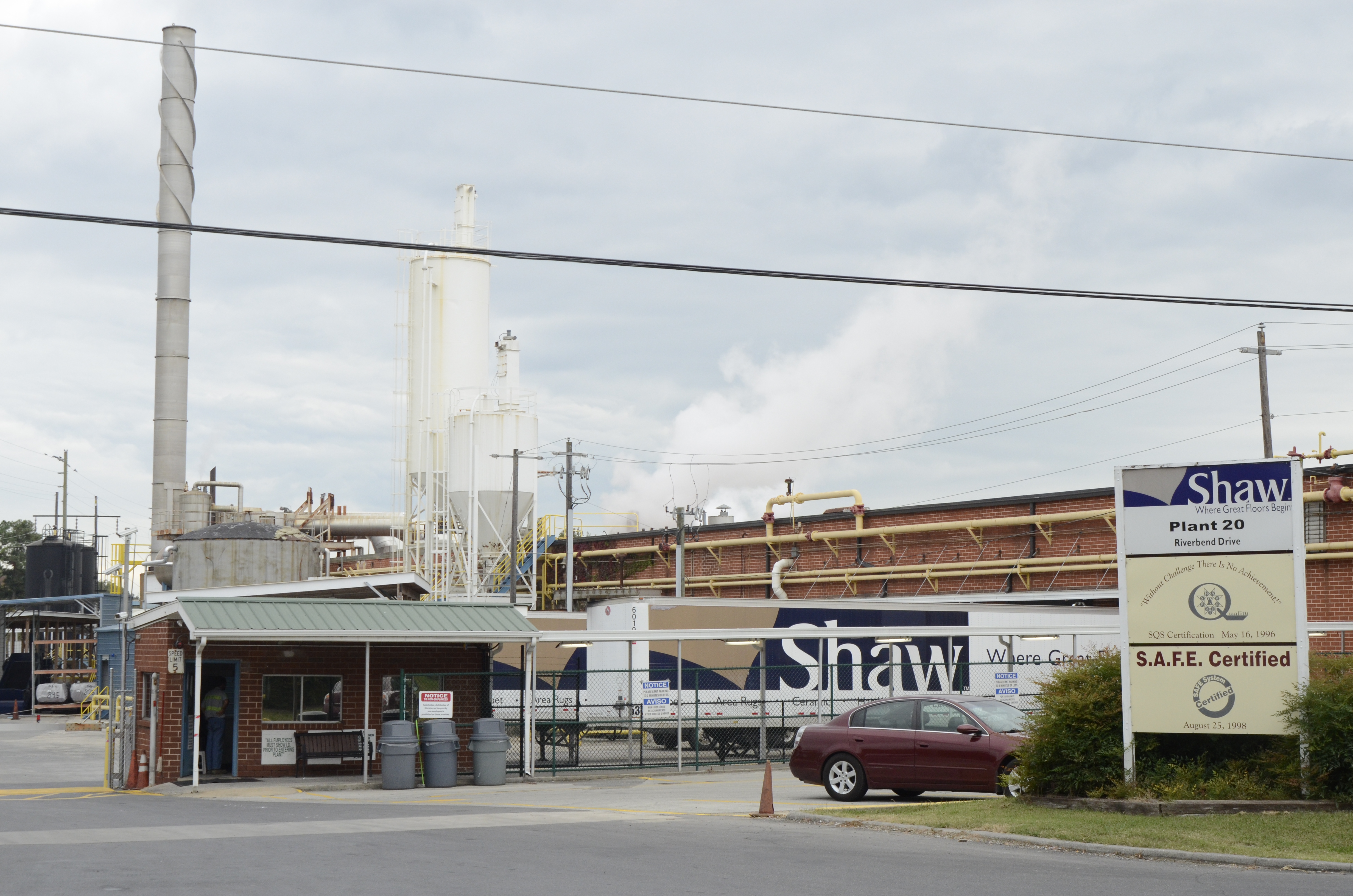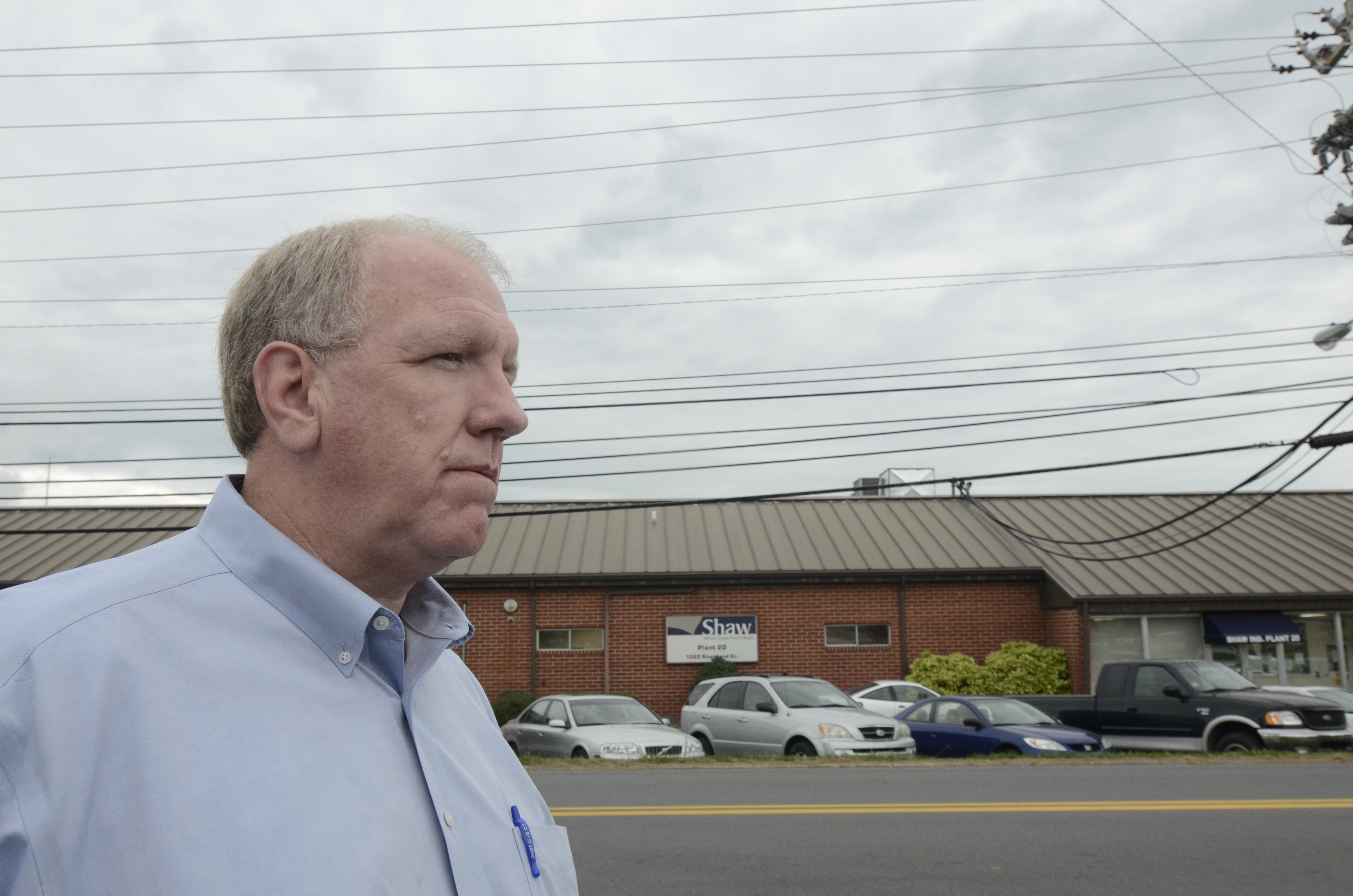SHAW TIMELINE
1946 -- Shaw got its start as Star Dye Co., which dyed rugs, spreads and robes.1967 -- A holding company was formed to acquire Philadelphia Carpet Co. A year later, the holding company added Star Finishing, which evolved out of Star Dye, to the fold.1971 -- Philadelphia Holding Co. went public as Shaw Industries Inc.1982 -- Shaw created its own trucking subsidiary.1983 -- Shaw acquired six yarn-spinning mills, giving Shaw 100 percent of its own yarn supply.1987 -- Shaw purchased WestPoint-Pepperell Carpet and Rug Division, acquiring the Cabin Crafts and Stratton brands and adding 40 percent to the company's sales volume.1989 -- The carpet giant acquired the Evans & Black brand of Armstrong World Industries Inc., adding 30 percent to sales volume.1992 -- Shaw bought Amoco's polypropylene fiber production facilities, becoming the largest producer of polypropylene fiber in the world.1998 -- Shaw created the Hard Surfaces division with the launch of Shaw Ceramics.2000 -- Berkshire Hathaway Inc., the holding company of renowned financier Warren E. Buffett, bought Shaw.2003 -- Shaw completed its purchase of the North Georgia operations of the Dixie Group, acquiring such brands as Carriage Carpets, Bretlin and Globaltex.2006 -- Vance Bell named Shaw's new CEO, with Randy Merritt as president.Source: Shaw Industries
DALTON, Ga. -- Shaw Industries has announced plans to close a Dalton, Ga., carpet plant within the next 60 days, a move that will cost 270 jobs.
Plant 20, which Shaw spokesman Al Scruggs described as "a traditional four-wall carpet plant," currently produces complete rolls of carpet from yarn on Riverbend Drive.
The massive building was one of Shaw's many acquisitions on its road to carpet dominance, but has become the latest casualty of a recession that just won't let go.
Scruggs described the closure as part of the "larger umbrella of right-sizing" due to stiff economic headwinds, though it will ultimately help the company save money as it shifts workers and equipment to other pants.
As with other recent mill closures, Shaw will give some employees the option to choose another job within Shaw, and the Georgia Department of Labor is expected to offer retraining to workers unable to secure another carpet job.
The latest announcement comes after Shaw announced layoffs in Eton and Ringgold in August, on top of the closure of a Chatsworth yarn plant in April.
Shaw also closed Georgia plants in Ringgold, Trenton and Calhoun, and Stevenson, Ala., in 2008 and 2009, eliminating more than 1,700 jobs at yarn plants in the tri-state area.
While Shaw still operates about 100 facilities in Georgia, the number of employees has dropped from more than 31,000 in 2006 to about 24,000.
"Some of this is moving equipment around and right-sizing," Scruggs explained.
Officials said the latest closure is not connected to a recent visit to Shaw's North Georgia operations by billionaire Warren Buffett, the chairman and CEO of holding company Berkshire Hathaway, which bought Shaw in 2000.
"The two events are unrelated," said Susan Rich, a Shaw spokeswoman. "This was an internal meeting and Mr. Buffett was very optimistic about the future."
Paul Murray, Shaw's vice president of sustainability, said in an October interview that Buffett believes that the economy will eventually recover, but that any recovery could still be years away.
The famous investor told executives that the housing market may not fully recover until 2013, and that weak demand "could even extend into 2014," Murray said.
Right now the market is stagnant, and some analysts say it has dipped slightly since the beginning of the year.
"Business continues to be flat," Scruggs said.
Kemp Harr, publisher of Floor Focus Magazine, said carpet demand is down 40 percent from 2006 and down 4 percent from this time last year.
"We thought it would recover in '11 but it hasn't," said Harr.
Shaw will likely see significant savings from the plant closure, he said, as the manufacturer tries to consolidate in the face of shifting consumer tastes and a sputtering economy.
"If you have a lot of little plants, it's less efficient than having one big plant," he said.
When consumer spending and especially homebuying pick back up, Shaw wants to be ready for the eventual carpet resurgence, the company wrote in a news release.
"Shaw will continue to position and strengthen its manufacturing base, not only to compete today, but to better position itself for growth as conditions improve in the future," the release said.
Shaw originally bought the Riverbend Drive plant in December 1979 from Evans & Black, which opened it in 1965.
"Some folks have actually been working here since the E&B days," Scruggs said.
In terms of space, it's one of the company's bigger plants, and could serve a number of uses for the carpetmaker. Previously shuttered carpet mills have been converted to wood laminate manufacturing, storage and even been reopened as tufting plants, he added, though the company has no plans for the building as of yet.
Contact staff writer Ellis Smith at esmith@timesfreepress.com or 423-757-6315.


